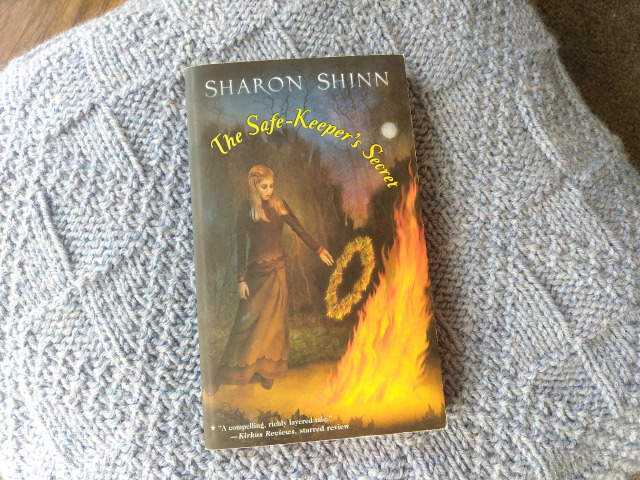#the safe keepers secret

Books I Read in 2022
#12 – The Safe-Keeper’s Secret, by Sharon Shinn
- Rating: 2/5 stars
A beautiful narrative style that’s soft, lyrical, and comforting; a lackluster story.
I can’t say there’s nothing about this book that I enjoyed, but there was far more that troubled me. As much as I liked the ideas about the magic of the Truth Tellers and Safe Keepers, both roles come with moral challenges that the story only partially addresses. When Fiona realizes that her mother has to keep secrets that are deeply hurtful in some way, like those about abuse or other crimes, she suffers pangs of conscience and an anger that her mother can’t/isn’t doing anything about those harmful situations. I thought that was great, and later on was glad to see that she skirted the edges of her own Safe Keeper position in order to help someone in need without betraying the secret directly; but even if Fiona “saved” the girl in trouble, there was no justice for her, as the trouble she was in went unpunished, and the girl’s mother seemed very blithely uncaring that her husband might go on to molest other young girls, the implication being that they don’t matter because they’re not family. And I’m not okay with that.
Another issue is the incredibly ableist attitudes of most of the characters, which I found surprising and disturbing. At this point I’ve read most of Shinn’s catalog of works, with only some of the most recently published that haven’t crossed my path yet. And I genuinely don’t remember any of them being this ableist. One of the minor characters is described as weak and frail due to an accident when she was younger. Her fiance marries her anyway, despite her telling him she doesn’t believe she could ever bear children, because of her health–he insists he marries her for love and will live with the disappointment of not having children. When truths and secrets come out later in the story, it becomes clear that a) she probably could have safely had kids, and b) having a kid was the husband’s deepest wish. So everybody in that marriage was suffering, and fair enough, but the blame is laid entirely on the disabled wife for her selfishness and frailness. Everyone who knows them sees the husband as the nobly suffering victim of his situation, while ignoring the actual physical pain of the wife, and whatever presumable emotional trauma she dealt with from being branded as the disappointing wife who the husband so nobly endures. Fiona, our main character, immediately hates the wife because of this situation and says some pretty awful things about her. I thought at first that it would be a character flaw of hers that got resolved somehow later, but no, everybody else goes along with it, and the ending makes it very clear that the wife was in the wrong.
Which, in a larger sense, is also pretty misogynistic, because the story definitely looks down on a woman who doesn’t want to be a mother. Yes, apparently she lied about her ability to be one and that’s not great, but since the couple’s childlessness is the source of the husband’s suffering and that’s treated more seriously by the narrative that the wife’s actual pain…yuck. Just yuck, all around.
There are other problems with the ending, too. I figured out some of the secrets revealed, but not all of them–I’m not convinced that one in particular wasn’t a total ass-pull that would have been impossible to determine ahead of time. But despite all these dreams being granted and all this secret knowledge shared, somehow the ending still feels incomplete, and the preview chapter for the next book seems to be dealing with entirely new characters, so I’m not sure any further resolution would be forthcoming if I kept reading. I don’t think I will.
